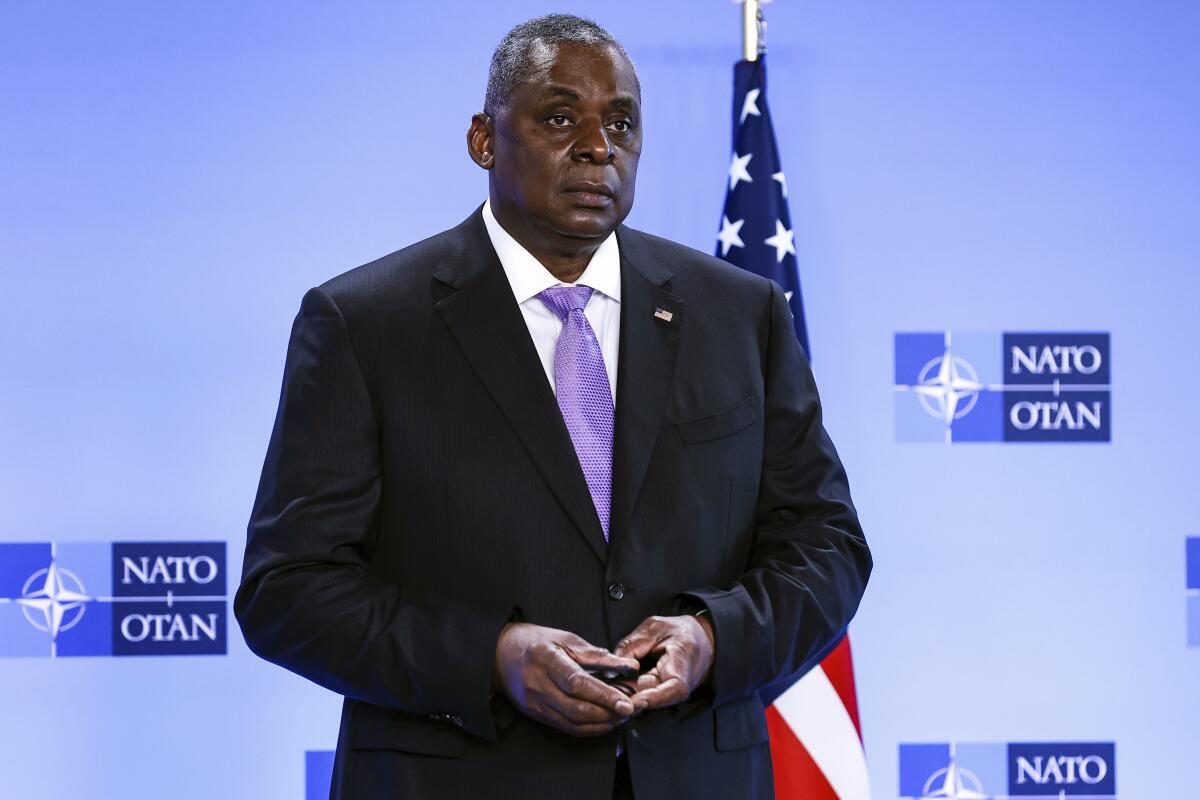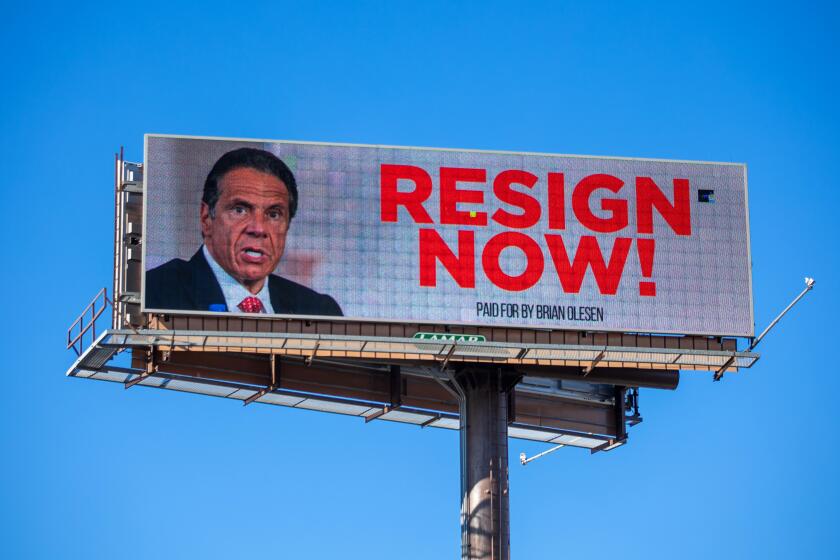Pentagon panel urges end to commanders’ power to block military sexual assault cases

- Share via
WASHINGTON — A Pentagon panel is recommending that decisions to prosecute service members for sexual assault be made by independent authorities, not commanders, in what would be a major reversal of military practice and a change long sought by lawmakers, the Associated Press has learned.
The recommendation by an independent review commission created by Defense Secretary Lloyd J. Austin III goes against decades of vehement Pentagon arguments to keep cases within the chain of command. It was among a number of initial recommendations delivered to Austin on Thursday, according to two senior defense officials.
Austin expects to seek input from military service leaders before making any final decision, the officials said, speaking on condition of anonymity to discuss internal reports not yet made public. But combating sexual assault in the military is a top priority for Austin, and the fact that this recommendation was made so directly and quickly suggests it will carry a lot of weight.
The proposed changes represent Austin’s effort to confront a problem that has long plagued the department, triggered widespread congressional condemnation and frustrated military leaders struggling to find prevention, treatment and prosecution strategies that work.
The review panel said that for certain special victims crimes, designated independent judge advocates reporting to a civilian-led office of the Chief Special Victim Prosecutor should decide two key legal questions: whether to charge someone and, ultimately, if that charge should go to a court-martial, the officials said. The crimes would include sexual assault, sexual harassment and, potentially, certain hate crimes.
According to the officials, that recommendation would affect only a small fraction of the wide range of military discipline cases that commanders regularly handle.
Current and former soldiers at Ft. Hood Army base in Texas have used social media to report accounts of sexual assault and harassment.
The panel also is recommending that sexual harassment claims be investigated outside the chain of command and that, if a charge is substantiated, the military should immediately begin the process of discharging that person from the force while other legal proceedings continue.
The officials said a driving part of the panel’s deliberations was the belief that many service members have lost faith in the system and that these changes would help restore that faith. Eventually, they said, it could lead to increased reporting by victims of sexual assaults.
The changes would require an increase in funding and personnel, but it is not yet clear how much.
Removing legal decisions from the chain of command, however, won’t eliminate the role of a commander in addressing sexual misconduct, the officials said. Unit leaders will still be responsible for setting a proper command climate and still must play a role in preventing and addressing sexual assault, harassment and other problems with their service members.
When activist Tarana Burke coined Me Too she unleashed a dynamic, grass-roots-driven paradigm shift.
Reports of sexual assaults have steadily gone up since 2006, according to department reports, including a 13% jump in 2018 and a 3% increase in 2019. The 2020 data are not yet available.
There have been a number of changes in the Military Code of Justice over the last decade to add more civilian oversight to the military’s prosecution of sexual assault cases and to beef up assistance for victims. But lawmakers such as Sen. Kirsten Gillibrand (D-N.Y.) have long demanded a more concrete shift, arguing that commanding officers should be stripped of the authority to decide whether serious crimes go to trial.
Those commanders, Gillibrand and others argue, are often reluctant to pursue charges against their troops, and overrule recommendations for courts-martial or reduce the charges. And they contend that victims consistently say they are reluctant to file complaints because they don’t believe they’ll get support from their chain of command since often their attacker is a senior military member.
Military leaders have persistently fought such a change, saying it would erode the chain of command. Taking that authority away, senior military officials have said, will hurt unit cohesion.
News Alerts
Get breaking news, investigations, analysis and more signature journalism from the Los Angeles Times in your inbox.
You may occasionally receive promotional content from the Los Angeles Times.
Austin, in his first directive after taking office in January, gave senior leaders two weeks to send him reports on sexual assault prevention programs, and an assessment of what has worked and what hasn’t. In February, he announced the commission’s creation.
The officials said other initial recommendations sent to Austin seek to professionalize the workforce involved in the cases, calling for a military justice career track for prosecutors, judges, investigators and victims’ advocates. They also recommended improvements in allowing victims to get protective orders, and said there should be a set timeline for the justice process.
The officials said they expect Austin to give service leaders about a month to review the recommendations and come back to him with their response.
More to Read
Sign up for Essential California
The most important California stories and recommendations in your inbox every morning.
You may occasionally receive promotional content from the Los Angeles Times.












